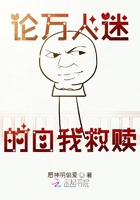Sailors, slung over the ship's side on swinging seats, were placidly smearing it with paint at that last moment; the bulwarks were thickly set with the heads and arms of passengers who were ****** signs to friends on shore, or calling messages to them that lost themselves in louder noises midway. Some of the women in the steerage were crying; they were probably not going to Europe for pleasure like the first-cabin passengers, or even for their health; on the wharf below March saw the face of one young girl twisted with weeping, and he wished he had not seen it. He turned from it, and looked into the eyes of his son, who was laughing at his shoulder. He said that he had to come down with a good-by letter from his sister, which he made an excuse for following them; but he had always meant to see them off, he owned. The letter had just come with a special delivery stamp, and it warned them that she had sent another good-by letter with some flowers on board. Mrs. March scolded at them both, but with tears in her eyes, and in the renewed stress of parting which he thought he had put from him, March went on taking note, as with alien senses, of the scene before him, while they all talked on together, and repeated the nothings they had said already.
A rank odor of beet-root sugar rose from the far-branching sheds where some freight steamers of the line lay, and seemed to mingle chemically with the noise which came up from the wharf next to the Norumbia. The mass of spectators deepened and dimmed away into the shadow of the roofs, and along their front came files of carriages and trucks and carts, and discharged the arriving passengers and their baggage, and were lost in the crowd, which they penetrated like slow currents, becoming clogged and arrested from time to time, and then beginning to move again.
The passengers incessantly mounted by the canvas-draped galleries leading, fore and aft, into the ship. Bareheaded, blue-jacketed, brass-buttoned stewards dodged skillfully in and out among them with their hand-bags, holdalls, hat-boxes, and state-room trunks, and ran before them into the different depths and heights where they hid these burdens, and then ran back for more. Some of the passengers followed them and made sure that their things were put in the right places; most of them remained wedged among the earlier comers, or pushed aimlessly in and out of the doors of the promenades.
The baggage for the hold continually rose in huge blocks from the wharf, with a loud clucking of the tackle, and sank into the open maw of the ship, momently gathering herself for her long race seaward, with harsh hissings and rattlings and gurglings. There was no apparent reason why it should all or any of it end, but there came a moment when there began to be warnings that were almost threats of the end. The ship's whistle sounded, as if marking a certain interval; and Mrs. March humbly entreated, sternly commanded, her son to go ashore, or else be carried to Europe. They disputed whether that was the last signal or not; she was sure it was, and she appealed to March, who was moved against his reason.
He affected to talk calmly with his son, and gave him some last charges about 'Every Other Week'.
Some people now interrupted their leave-taking; but the arriving passengers only arrived more rapidly at the gang-ways; the bulks of baggage swung more swiftly into the air. A bell rang, and there rose women's cries, "Oh, that is the shore-bell!" and men's protests, "It is only the first bell! "More and more began to descend the gangways, fore and aft, and soon outnumbered those who were coming aboard.
March tried not to be nervous about his son's lingering; he was ashamed of his anxiety; but he said in a low voice, "Better be off, Tom."
His mother now said she did not care if Tom were really carried to Europe; and at last he said, Well, he guessed he must go ashore, as if there had been no question of that before; and then she clung to him and would not let him go; but she acquired merit with herself at last by pushing him into the gangway with her own hands: he nodded and waved his hat from its foot, and mixed with the crowd.














